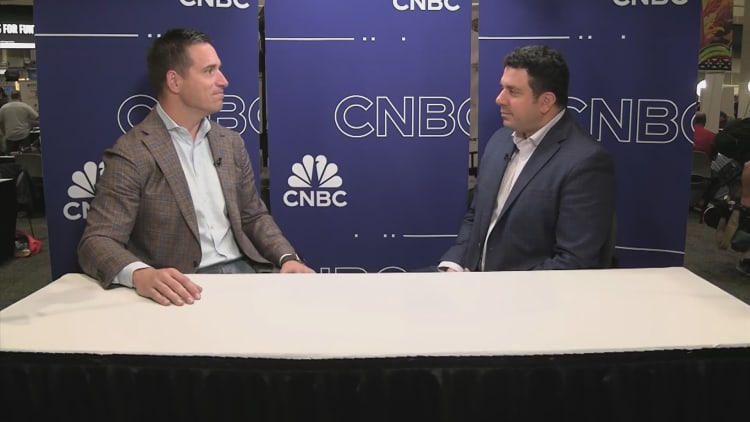Edit Content
Trending






Hypertension (high blood pressure) can damage your heart and blood vessels and increase your risk of heart attack, stroke, and other heart conditions. Due to these risks, it’s important to manage your blood pressure.
Lifestyle changes, such as a well-balanced diet and regular physical activity, are key. Some people with hypertension may need prescription medication to lower blood pressure.
While evidence is mixed, some studies suggest magnesium supplements may also help.
Magnesium can help lower blood pressure in two ways: widening blood vessels and preventing blood vessel damage.
Magnesium widens blood vessels by stimulating chemicals called prostacyclin and nitric oxide. This helps lower the force of blood inside the vessels, lowering blood pressure.
Magnesium also widens blood vessels by blocking the effects of calcium. Calcium causes blood vessels to tighten, which increases your blood pressure. By blocking calcium, magnesium prevents blood vessels from tightening and your blood pressure from rising.
Magnesium also reduces blood vessel stiffness by altering the endothelium (a thin layer of cells in the blood vessel lining) and muscles surrounding your vessels.
Magnesium has antioxidant and anti-inflammatory effects, which help counteract vascular damage and injury. This can reduce vascular stiffness and prevent the buildup of plaque—both of which contribute to high blood pressure.
Given the lack of conclusive benefit, the American College of Cardiology and American Heart Association hypertension guidelines do not recommend magnesium to lower blood pressure. However, some research suggests that magnesium may help lower blood pressure among people with uncontrolled hypertension.
One review of past studies found that supplementing with 368 milligrams of magnesium daily for an average of three months significantly lowered blood pressure. However, this effect was only seen in people with low magnesium levels.
Magnesium supplementation has also been shown to reduce blood pressure among people with insulin resistance (when your body no longer responds to insulin), prediabetes (a condition characterized by higher-than-normal blood sugar levels), diabetes, and heart disease.
Magnesium is available in several forms. The body absorbs certain forms better than others. These include magnesium aspartate, citrate, lactate, and chloride. A healthcare provider can help determine which form of magnesium is best for you.
The recommended dosage of a magnesium supplement depends on the specific product.
How much magnesium you need to take to see an effect on blood pressure may also depend on whether you take blood pressure medication.
One review showed that magnesium doses of 240 milligrams or higher helped lower blood pressure in people already taking hypertension medication. People with hypertension who weren’t taking medication saw lower blood pressure when they took at least 600 milligrams a day.
Larger doses may cause side effects, though. A dosage below 350 milligrams is unlikely to cause side effects. You shouldn’t take more than this amount unless a healthcare provider tells you to. Taking too much magnesium can lead to toxicity or serious side effects.
Magnesium supplements can be taken with or without food. They can be taken at any time as long as you take them at the same time each day.
Although magnesium may interact with other medications, it is generally safe to take with most blood pressure medications. In fact, magnesium aspartate, chloride, oxide, pidolate, and amino-acid chelate have been shown to effectively lower blood pressure in people with uncontrolled hypertension who were taking blood pressure medications.
One exception may be calcium channel blockers, such as Norvasc (amlodipine) and Cardizem (diltiazem). These drugs help treat high blood pressure by blocking calcium to help relax blood vessels.
Because magnesium acts as a natural calcium channel blocker, taking magnesium supplements along with calcium channel blocker drugs may cause your blood pressure to drop too low. This can lead to side effects such as dizziness, lightheadedness, and fainting.
If you’re taking blood pressure medications, speak with a healthcare provider before starting magnesium supplements. They can let you know whether the supplement is safe to combine with your current medications.
The United States Food and Drug Administration (FDA) doesn’t regulate supplements. Your provider can also help you determine which products may be safest, such as those tested by a third party.
The blood from your heart travels to other parts of your body through your arteries. Blood pressure measures the force of your blood pushing against your artery walls. There are two numbers in a blood pressure measurement—systolic blood pressure (SBP) and diastolic blood pressure (DBP).
For adults, a normal blood pressure reading is an SBP below 120 millimeters of mercury and a DBP below 80 millimeters of mercury. The measurement is commonly written out as 120/80 mmHg.
Hypertension develops when the force of blood pushing against the walls of blood vessels is too high. It is defined as an SBP of 130 millimeters of mercury and above or a DBP of 80 millimeters of mercury and above.
If your blood pressure stays high consistently, your heart needs to work harder to pump blood to other parts of your body. This can increase your risk of serious health problems, such as heart disease, heart attack, and stroke.
There are usually no warning signs or symptoms of hypertension. The only way to know if your blood pressure is high is to measure it. This can be done in a healthcare provider’s office or using a blood pressure machine at home or at a pharmacy.
Magnesium isn’t only good for lowering blood pressure. It is an essential nutrient that helps your body make energy and protein. Your body needs magnesium to maintain:
Depending on your magnesium levels and health needs, a healthcare provider may recommend taking magnesium supplements to up your intake. However, trying to get the proper amount of magnesium through your diet is usually recommended.
Magnesium is in several foods, such as green leafy vegetables, legumes, nuts, seeds, and whole grains. Specific examples of foods with magnesium include:
The best way to ensure you’re getting the recommended amount of magnesium is to eat a variety of plant and animal foods. Foods like breakfast cereals may also be fortified with magnesium.
Hypertension (high blood pressure) occurs when the force of your blood pushing against the wall of your blood vessels is too high. Long-term hypertension can increase your risk of serious health problems, such as heart disease, heart attack, and stroke.
Magnesium is an essential nutrient believed to help reduce blood pressure by widening blood vessels. Some studies have shown that magnesium can help lower blood pressure in certain people and at certain doses.
If you’re interested in taking a magnesium supplement to improve your blood pressure, talk to a healthcare provider. They can discuss the risks and benefits, as well as recommend a specific product and dosage.
©2024. Livebuzznews. All Rights Reserved.